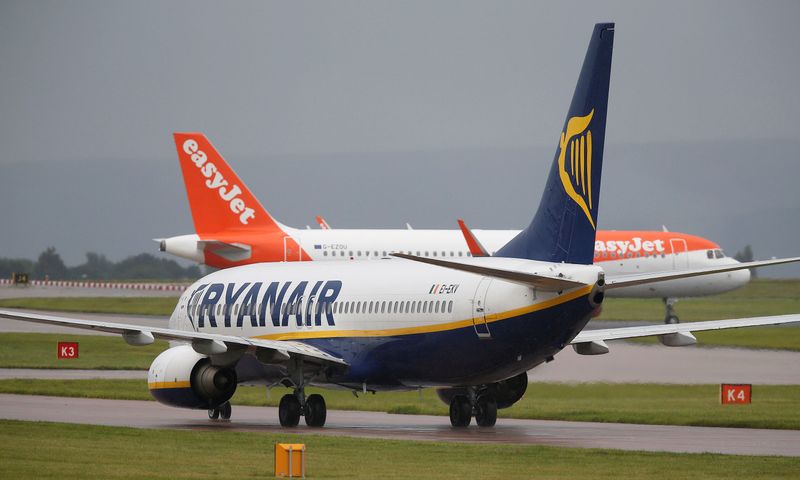By Kate Abnett
BRUSSELS (Reuters) - Ryanair, Easyjet and other low-cost airlines have written to the European Union asking that its plan to force carriers to use a certain share of sustainable fuels apply to all flights, not just short-haul ones.
The European Commission is drawing up targets for airlines to use a minimum share of sustainable aviation fuels (SAF), to curb the sector's planet-warming CO2 emissions. In December Brussels shelved a draft 5% target for 2030 for being too low.
A group of budget airlines, which do not compete in long-haul markets, and environmental groups wrote to the Commission on Wednesday, asking that any SAF quotas apply not only to flights inside Europe, but also long-haul trips to and from the continent.
"Excluding long-haul flights from the SAFs mandate would mean the very area of our sector that most needs to decarbonise would not be covered at all by this legislation," said the letter to the EU's climate and transport policy chiefs.
Its signatories included Easyjet, Ryanair, Wizz Air, Jet2 and the non-governmental organisation Transport & Environment.
They cited data from air traffic management group Eurocontrol, which said the 6% of flights from European airports that travelled more than 4,000 km accounted for half of the total CO2 emissions from flights leaving Europe.
"There is no logic in excluding long-haul flights from SAF usage obligations as this is their only possible way to decarbonise," Ryanair CEO Michael O'Leary said in a statement.
T&E Executive Director William Todts said long-haul flights currently "escape regulation of their pollution despite causing the bulk of emissions".
The signatories said SAFs are the only near-term option to curb long-haul flights' emissions - while for short-haul, SAFs are a temporary solution, before technologies such as hydrogen-fuelled aircraft become available in the 2030s.
The move may be opposed by traditional carriers, if it imposes costs on them not faced by foreign rivals.

"Since sustainable aviation fuels will remain more expensive than fossil fuels for the foreseeable future, some rules are needed that go beyond the EU and apply internationally," a Lufthansa spokesman said. "Only then can a level playing field be ensured in global aviation."